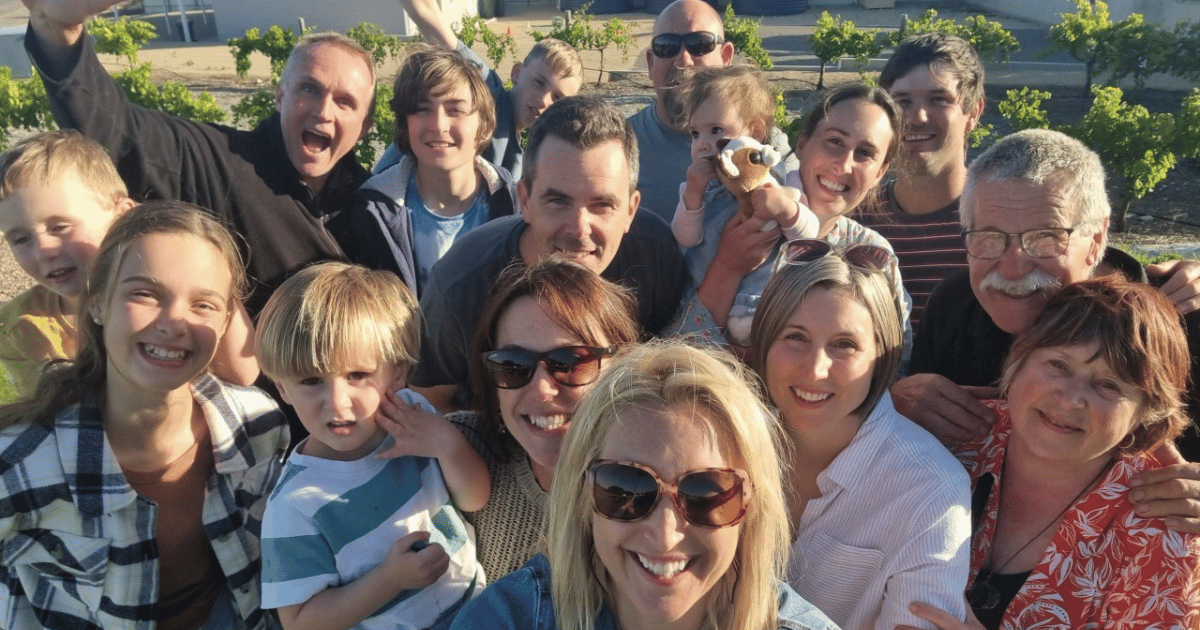Are you ready to transform your body and boost your confidence in just one month? After 16 years of coaching women through their weight loss journeys, I’ve seen firsthand the struggles, the victories, and the misconceptions that can either make or break progress. I understand the frustration of plateaus, the excitement of small wins, and the importance of a sustainable approach. In this article, I’ll share the practical strategies and proven methods that have helped countless women achieve lasting results. Whether you want to shed a few kilos for an upcoming event or embark on a more significant lifestyle change, understanding how much weight you can safely lose is essential for long-term success. Say goodbye to fad diets and unrealistic expectations—it’s time to embrace a balanced approach that truly works. Join me as we uncover the secrets to safe and sustainable weight loss and set you on the path to a healthier, happier you. Your transformation begins now.
Setting Realistic Goals
Setting realistic weight loss goals is a cornerstone of any successful weight loss journey. Unrealistic expectations can lead to frustration and disappointment, ultimately derailing your progress. To avoid this pitfall, it’s essential to set SMART goals—Specific, Measurable, Achievable, Relevant, and Time-bound. For example, instead of aiming to lose 10kg in a month, a more realistic goal would be to shed 2 to 4kg, depending on your specific circumstances.
A key part of setting realistic goals involves understanding your body’s unique needs and limitations. Seeking support from a fitness coach or healthcare provider can help guide you in setting achievable goals tailored to your circumstances. If you’re dealing with injuries, a demanding lifestyle, or ongoing health issues, these factors will influence the level of exercise and commitment you can realistically make. Having professional support ensures you set practical, sustainable goals rather than trying to change everything at once. While motivation is powerful, it’s important to acknowledge potential barriers and create a plan that sets you up for long-term success.
Moreover, breaking down your overall goal into smaller, manageable milestones can boost your motivation and sense of accomplishment. Celebrate each milestone, no matter how small, to keep your morale high. Remember, weight loss is not just about the number on the scales; it’s also about improving your overall health and well-being. Focusing on non-scale victories, such as increased energy levels, better sleep, and improved mood, can provide additional motivation to stay on track.
What is Realistic Weight Loss in One Month?
From my experience working with women since 2008, a common and achievable weight loss in a month is around 2–6kg. The clients who see the best results consistently do a few key things: they plan and track their meals, commit to regular exercise, stay accountable by checking in each week, and keep going even when challenges arise. They understand that a bad day isn’t the end of their progress—what matters most is getting back on track and staying consistent.
*12 Week Coaching Clients Before & After
How to get started on your Weight Loss journey….
Nutrition Basics for Weight Loss
Nutrition plays a pivotal role in any weight loss plan. Understanding the basics of a balanced diet can help you make informed choices that support your weight loss goals. A balanced diet includes a variety of foods from all food groups—fruits, vegetables, lean proteins, whole grains, and healthy fats. This ensures that your body gets the essential nutrients it needs to function optimally while creating a caloric deficit necessary for weight loss.
More Real Unprocessed Food
One effective strategy is to focus on nutrient-dense foods that provide maximum nutrition for minimal calories. Fruits and vegetables, for example, are high in vitamins, minerals, and fibre but low in calories, making them ideal for weight loss. Incorporating a variety of colourful produce in your meals can also keep your diet interesting and satisfying, reducing the likelihood of cravings and overeating.
Know How Much You’re Eating
Portion control is another crucial aspect of weight loss nutrition. Even healthy foods can contribute to weight gain if consumed in large quantities. Learning to recognise appropriate portion sizes and practising mindful eating can help you manage your caloric intake without feeling deprived. Additionally, staying hydrated by drinking plenty of water throughout the day can aid in weight loss by promoting a feeling of fullness and preventing overeating.

The Role of Exercise in Weight Loss
Physical activity is a critical component of any weight loss program. Exercise not only helps burn calories but also improves overall health, boosts mood, and enhances muscle tone. Incorporating a variety of exercises into your routine can keep things interesting and target different muscle groups, making your workouts more effective and enjoyable.
Cardiovascular Exercise
Cardiovascular exercises, such as walking, running, cycling, and swimming, are excellent for burning calories and improving heart health. Aim for at least 150 minutes of moderate-intensity cardio per week, as recommended by health experts. This can be broken down into manageable sessions, such as 30 minutes five times a week, making it easier to fit into a busy schedule.
Resistance Training
Strength training is equally important for weight loss. Building muscle mass increases your resting metabolic rate, meaning you’ll burn more calories even at rest. Incorporate strength training exercises, such as weight lifting, resistance band workouts, or bodyweight exercises, into your routine at least two to three times a week. This combination of cardio and strength training can help you achieve a balanced and effective weight loss plan.
Lifestyle Changes for Sustainable Weight Loss
Adopting healthy lifestyle changes is essential for long-term weight loss success. These changes go beyond diet and exercise, encompassing various aspects of your daily routine and habits. One key area to focus on is sleep. Quality sleep is crucial for weight loss, as it regulates hormones that control hunger and appetite. Aim for 7 to 9 hours of sleep per night to support your weight loss efforts.
Stress Management & Self-Care
Stress management is another important factor. Chronic stress can lead to emotional eating and weight gain. Finding healthy ways to cope with stress, such as practising mindfulness, meditation, yoga, or engaging in hobbies you enjoy, can help keep your weight loss journey on track. Additionally, building a support system of friends, family, or a weight loss group can provide encouragement and accountability, making it easier to stay motivated.
Mindset
Lastly, it’s essential to cultivate a positive mindset towards weight loss. Focus on progress rather than perfection, and be kind to yourself throughout the process. Remember that setbacks are a natural part of any journey, and the key is to learn from them and keep moving forward. By embracing a holistic approach to weight loss that includes healthy habits, stress management, and a positive attitude, you can achieve lasting results and transform your body and life.

Monitoring Your Progress
Tracking your progress is a vital aspect of a successful weight loss journey. Regular monitoring helps you stay accountable, identify patterns, and make necessary adjustments to your plan. There are various ways to track your progress, including keeping a food diary, using fitness apps, or taking regular measurements and photos.
A food diary can help you become more aware of your eating habits and identify areas for improvement. By recording everything you eat and drink, you can gain insights into your caloric intake and nutritional balance. Fitness apps can also be valuable tools, offering features like meal tracking, exercise logging, and progress charts. These apps can provide real-time feedback and help you stay on track with your goals.
Regular measurements and photos are another effective way to monitor your progress. In addition to weighing yourself, consider taking body measurements (e.g., waist, hips, arms, and thighs) and progress photos at regular intervals. These methods can provide a more comprehensive picture of your transformation, as weight alone may not always reflect changes in body composition.
The Power of Accountability in Online Coaching
Over the years, I’ve noticed that my online fitness coaching clients achieve even greater results than my bootcamp members. The key difference? Accountability. Through weekly check-ins, I help keep them on track, reviewing their food diaries, providing personalised feedback, and offering ongoing support. This regular guidance helps them stay focused, make adjustments when needed, and ultimately see faster, more sustainable progress compared to those without structured accountability.
Common Weight Loss Challenges and Solutions
Embarking on a weight loss journey is not without its challenges, but recognising and addressing these obstacles is key to staying on track and achieving your goals. One common challenge is hitting a plateau, where weight loss stalls despite continued effort. Plateaus are a normal part of the process and can be overcome by adjusting your diet, increasing physical activity, or incorporating new exercise routines to keep your body challenged.
Understanding Ups & Downs are Normal
A pattern I’ve noticed over the years of coaching is that week one often brings significant results, with the scale dropping by 2-3 kilos, leaving you feeling on top of the world. However, what I also warn my clients about is that it’s very common for weight loss to stall in week two. This doesn’t mean progress has stopped; rather, week one often involves some fluid loss, and by week two, things tend to balance out. You’re still making progress, but the scales aren’t always the best measure during this week.
Emotional Eating
Emotional eating is another common hurdle many face. It’s natural to turn to food for comfort during times of stress, sadness, or boredom. Developing healthy coping mechanisms, such as mindfulness practices, journaling, or seeking support from friends and family, can help you manage emotional eating and stay focused on your weight loss plan. It’s also important to recognise that it’s completely normal to have ups and downs and to occasionally go off track. This isn’t the end of your progress—the key is to focus on consistently getting back on track rather than striving for perfection. Learning to manage emotional eating and becoming more aware of it is a significant step forward.
Living Life While Losing Weight
Social situations and dining out can also pose challenges. It’s easy to indulge in unhealthy foods when dining with friends or attending social events. Planning ahead by reviewing menus, choosing healthier options, and practicing portion control can help you navigate these situations without derailing your progress. Remember, it’s okay to enjoy occasional treats in moderation, as long as you maintain a balanced approach overall.
The Importance of Patience and Persistence
Weight loss is a journey that requires patience and persistence. It’s important to understand that results may not come overnight, and there will be ups and downs along the way. Staying committed to your goals and maintaining a positive attitude can help you overcome challenges and stay motivated.
Celebrating small victories and acknowledging your progress, no matter how minor, can boost your confidence and keep you focused on your long-term goals. Remember that weight loss is not just about the destination but also about the journey and the healthy habits you develop along the way.
Staying persistent means continuing to put in the effort even when progress seems slow. It’s essential to trust the process and recognize that lasting change takes time. By staying patient and consistent with your healthy habits, you can achieve sustainable weight loss and transform your body and life for the better.

Expert Tips for Successful Weight Loss
Over the last 16 years of online coaching, I’ve learned a thing or two about what truly gets results. Here are some key factors to include in your weight loss journey:
Prioritise protein: Including adequate protein in your diet helps you feel full, preserve muscle mass, and supports your metabolism. Aim to include lean protein sources, such as chicken, fish, beans, and legumes, in every meal.
Stay hydrated: Drinking enough water is essential for overall health and can aid in weight loss by promoting satiety and reducing overeating. Aim for at least eight glasses of water per day, and consider drinking a glass before meals to help control portion sizes.
Plan your meals: Meal planning helps you make healthier choices and avoid last-minute, unhealthy options. Prepare balanced meals and snacks in advance to ensure you stay on track with your nutrition goals.
Get enough sleep: Prioritise quality sleep to support your weight loss efforts. Establish a regular sleep schedule and create a relaxing bedtime routine to improve your sleep quality.
Stay active throughout the day: In addition to your regular workouts, find ways to stay active throughout the day. Take breaks to stretch, go for short walks, or incorporate more movement into your daily routine to increase your overall activity level.
Get support: Having a support system can make a significant difference in your journey. Surround yourself with people who encourage your progress and hold you accountable, whether it’s a coach, family, or friends.
Have a plan: Setting clear goals and having a structured plan in place helps you stay on track. Outline your daily and weekly goals, track your progress, and adjust as needed to ensure continued success.
Incorporate self-care: Taking time for self-care is crucial for long-term success. Manage stress, practice mindfulness, and engage in activities that bring you joy to maintain balance and keep you motivated.
Conclusion
Embarking on a weight loss journey requires dedication, patience, and a balanced approach. By understanding the principles of safe weight loss, setting realistic goals, and making informed choices about nutrition and exercise, you can achieve lasting results. Remember that weight loss is not just about the number on the scale but also about improving your overall health and well-being.
Embrace the process, celebrate your progress, and stay persistent in your efforts. With the right mindset and strategies, you can transform your body and life, achieving a healthier, happier you.
Your journey towards weight loss success begins now—take the first step and commit to making positive changes that will benefit you for a lifetime.
Your journey towards weight loss success begins now—get started with my 21-day reset for just $7, and take the first step towards making lasting positive changes. From there, you can progress to either my personalised coaching program or the Midlife Makeover to make some MASSIVE changes and continue transforming your life!





